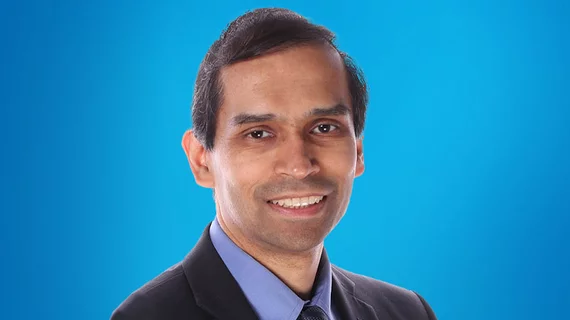Interventional cardiologist Deepak L. Bhatt, MD, named new director of Mount Sinai Heart
Interventional cardiologist Deepak L. Bhatt, MD, has been named the new director of Mount Sinai Heart in New York City. He succeeds Valentin Fuster, MD, PhD, who held the position since 2006 and will now serve in a more advisory role as Mount Sinai Heart’s president.
Bhatt will also serve as the first Valentin Fuster Professor of Cardiovascular Medicine, an endowed professorship created in his predecessor’s honor.
“I am very excited to take on this leadership role at Mount Sinai Heart, one of the best cardiovascular centers in the world for clinical care, research, and education,” Bhatt said in a prepared statement. “I am humbled to be named the Dr. Valentin Fuster Professor—it is a singular honor in the world of medicine that is unmatched.”
“The Mount Sinai Health System will be enriched by the outstanding recruitment of Dr. Deepak Bhatt, one of the most brilliant clinicians and academicians in the cardiovascular field today,” Fuster said in the same statement.
Bhatt is a hugely influential figure in interventional cardiology. He comes to Mount Sinai after spending several years with Brigham and Women’s Hospital Heart and Vascular Center, where he served as the executive director of interventional cardiovascular programs, and Harvard Medical School, where he served as a professor of medicine. Before that, he held key roles with VA Boston Healthcare and Cleveland Clinic.
Bhatt is also the editor of the Journal of Invasive Cardiology and the associate editor for clinical trials and news for the American College of Cardiology. He has authored or co-authored nearly 2,000 publications and led multiple clinical trials.
“A worthy successor to Dr. Fuster would be almost impossible to find, but Deepak Bhatt is the rare individual who can actually meet that standard,” Kenneth L. Davis, MD, CEO of Mount Sinai Health System, said in the same statement. “Mount Sinai’s legacy of world-leading cardiology will continue under his leadership.”
Mount Sinai Heart, a key part of the Mount Sinai Health System, was founded back in 2006. In July, U.S. News & World Report ranked Mount Sinai Heart No. 6 on its list of the top 25 U.S. hospitals for cardiology and heart surgery.
Watch a recent interview with Deepak L. Bhatt, MD
Bhatt recently spoke with Cardiovascular Business on the new generation of cholesterol-lowering drugs and the role each one is expected to play in patient care in the years ahead.
"In terms of cholesterol lowering in general, it is a really exciting time," he said during the conversation. "There are now a lot of different options right now."
Watch the full interview here.

